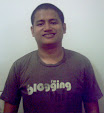 You may have heard of Cityville, the newest game craze on Facebook. Right now, you might already be hooked on the game. Yup Cityville, and you know what? I hated it. You know why? It’s because my wife is totally hooked on it. Right now while I’m writing this post, her eyes are glued on it. Then come to think of it, she’ll have something to think about while I’m also glued on my monitor writing this post.
You may have heard of Cityville, the newest game craze on Facebook. Right now, you might already be hooked on the game. Yup Cityville, and you know what? I hated it. You know why? It’s because my wife is totally hooked on it. Right now while I’m writing this post, her eyes are glued on it. Then come to think of it, she’ll have something to think about while I’m also glued on my monitor writing this post.But wait I’m giving it a second thought. Just from observing the intricacies of the game while she plays it, I come to realize its academic value. Academic in the sense that it made use of certain concepts and models I have encountered in school when you play it. I think playing the game can be a good exercise for the (academic) mind. Here’s a short list of these concepts and models which are applied in the game:
Models of Urban Structure
 |
| The Concentric Ring Model |
A more complex yet interesting model is the Sector Model. This is a city developed along major transportation structures (railroads, roads, ports, etc.). The model is based upon the idea that settlements grow from a need for greater access thus commercial areas are established along main roads and industries along railroads. Residential areas are then categorized into low income (those near industries and businesses), middle income (farther away from industries) and high income (farthest from the industries).
The Multiple Nuclei Model, although starts with a central business district, eventually produces multiple centers as necessary structures spring around major businesses (e.g. hotels and restaurants built around airports or apartments and cafeterias established around schools). This may happen in the game as you city expands into a more complex arrangement of buildings, houses, and other structures.
Factors of Production
 As a basic economic concept, production is possible through the right combination of the following factors: land, labor, capital, and entrepreneurship. In Cityville, your performance on the game is based on how you make decisions in using and acquiring these factors: land (expansion), labor (energy), capital (buildings, structures, etc.), and entrepreneurship (this refers to your skills and strategies as a player).
As a basic economic concept, production is possible through the right combination of the following factors: land, labor, capital, and entrepreneurship. In Cityville, your performance on the game is based on how you make decisions in using and acquiring these factors: land (expansion), labor (energy), capital (buildings, structures, etc.), and entrepreneurship (this refers to your skills and strategies as a player).The Law on Comparative Advantage
This is a concept in political economics referring to an economy’s advantage in the production of goods in response to the advantage of another economy. If you have the ability to produce more of a specific product which is needed by another country which has a limited production of it and that country also has the ability to produce a certain product which you need but you cannot produce much for your own consumption, then why not trade. You sell your surplus goods to them and buy goods you need from them. In Cityville, the train facilitates the use of comparative advantage. If you lack the goods to supply your business then buy goods using the train. On the other hand, if you lack the money to build your businesses, then sell your goods using the train. Export/Import! That’s what I’m talking about.
Ecological Services
My inclination in the field of economics is on balancing it with the environment. So I can’t help but notice this concept. Ecological services refer to the services given by nature (organisms and ecosystems) which has given us a load of benefits through its processes (water purification, provision of clean air, pollination, or aesthetic and recreational benefits). The value of these services is a factor of production (e.g. we need to breathe clean air and drink clean water in order to do our job well, right?). Furthermore, these services cannot be replicated even by the most modern technology. Thus, it should have a certain value in the market and in Cityville it does have. The shady tree decoration adds a 1% value to your earnings if you plant it near a business or a residence. This means more trees more earnings. I just regret that a tree only adds 1% value to an economic good, it should be more. Any way, I hope this transcends into reality, so plant more trees around your homes to add value to it.
Social Capital
Social Capital is a sociological concept referring to social networks (friends, relatives, associations, etc.) as a factor of production in the same way as a computer or your master’s degree contributes to productivity (e.g. if you’re a single parent, you might not be able to work without a relative whom you trust to take care of your child while your in the office). In Cityville, you won’t be able to harvest all the crops in your farm or collect your earnings from businesses without the help of your neighbors (friends) you need lots of energy for that. Sometimes you need to hire your friends in your community buildings (city hall, post office, police station) so that you can attract more citizens. Furthermore, you need your neighbors’ gifts so that you can effectively build your city. After all Cityville (and Facebook) is a community, we need each other every now and then.
There you go. Games should not just be recreational, it should also be educational. There are more concepts in my list but this post is getting longer. I don’t want to bore you so I’ll end this post by breaking the following news:
My wife told me that she needs my help in building her city. She asked me to be her neighbor so I could give her gifts that she could use. She said, I can also help by visiting her city and help her with harvesting her crops and collecting fees. Being a good husband I submitted to her will.











0 comments:
Post a Comment